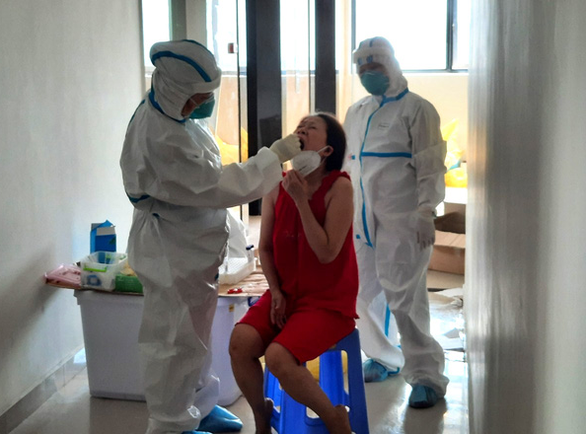Ho Chi Minh City has recently allowed asymptomatic COVID-19 cases to stay home for self-isolation and monitoring, but patients still need to uphold strict safety guidelines to protect themselves and others.
Asymptomatic COVID-19 cases no longer have to enter quarantine centers, as the Ho Chi Minh City Center for Disease Control (HCDC) has allowed them to self-isolate at home after being diagnosed, according to Dinh Thi Hai Yen, head of Health Communication and Education Department at HCDC.
Currently, asymptomatic patients who have spent seven days at the hospital and have received the discharge can return home and self-isolate for the next 14 days.
Newly-detected COVID-19 cases detected in the community, who show no clinical symptoms and no preexisting conditions such as obesity (or preexisting conditions are being well treated), will also be allowed to self-monitor at home for 14 days.
In case they are eligible to stay home, asymptomatic patients should stay calm and remember two key safety principles: Avoiding infection to surrounding people, and monitoring their own health conditions.
The patients should wear face masks at all times, save for when they eat or clean themselves. They should dispose of the mask twice a day, and must sanitize their hands with alcohol before doing so.
All surfaces in contact with the patient, including tabletops, door knobs, toilets and sinks, should be disinfected on a regular basis.
Patients must check their body temperature at least twice per day, or whenever they feel like catching fever, while medical declaration on the official Vietnam Health Declaration app must be done at least once a day.
In case of exhibiting one of the disease’s symptoms, including a fever of 38 degrees Celsius or above, lip bruises, coughing, sore throat, diarrhea, loss of taste and smell, lethargy, shortness of breath, or difficulty breathing, patients are advised to dial 1022 (ext. 3), the 115 emergency hotline, or contact the local fast-response teams, which consists of doctors, nurses, police officers and volunteers, to report the situation and receive support.
Otherwise, they should maintain a healthy lifestyle, with sufficient hydration, vitamins and minerals, as well as body and breathing exercises of at least 15 minutes per day.
Like us on Facebook or follow us on Twitter to get the latest news about Vietnam!



























